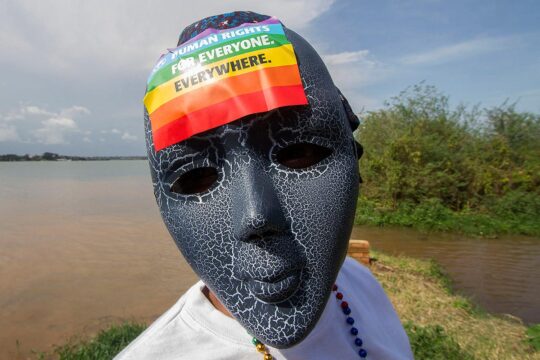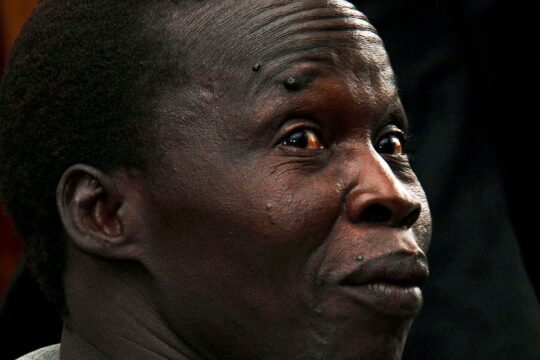From November 25, to December 9, 2016, I was privileged to join a select group of 25 participants who attended a two-week seminar on truth, justice and remembrance in Berlin, Germany. I was the only Ugandan in the group, and one of five Africans, a factor which I felt highlighted the significance of my presence there.
I arrived in Berlin on a chilly Thursday evening on November 24, 2016. I was eager to get my first glimpse of the city, given that it was my first visit to Germany. Prior to this, all I knew about Germany was what we had been taught in European history regarding the first and second world wars. In Uganda Berlin was especially famous for the Berlin Conference of 1884 that formalized the colonization of Africa. I could say my curiosity was mingled with a bit of bias based on this dark history of Germany.
But over the next two weeks, this narrow perspective was lifted like a fog disappearing on a bright sunny morning. I marveled as over the course of many days I learnt about how Germany had fastidiously dealt with its conflict past, and the numerous memory initiatives that had been put in place. I was left breathless by the numerous visits to various historical sites, museums, monuments, memorials and detention centers. A walk around Berlin revealed a memorial of some sort at every street corner. I was left with the impression that Germany had virtually faced its past boldly. I developed a new respect, and love for Germany and its people based on this experience.
The above experience inevitably led me to reflect on how truth, justice and remembrance had been approached back home in Uganda. Every time I visited a memorial or monument, I could not help but draw a contrast between memorial initiatives in Germany and Uganda. I realized with regret, that Germany was many years ahead of Uganda. I was hit with the stark reality that in Uganda little has been done to promote truth, justice and remembrance.
Since 2006, I have lived and work in Gulu district, northern Uganda, a region that was affected by over two decades of conflict as a result of a civil war fought between the Government of Uganda and a notorious rebel group called the Lord’s Resistance Army (LRA). This civil war had disastrous impacts upon the civilian population, leading to the displacement of over 1.8 million people, and the abduction of over 60,000 children by the LRA for use as child soldiers and sex slaves. Northern Uganda is still recovering from the devastating impacts of the conflict. In fact Uganda as a country has also been destabilized by numerous conflicts since the attainment of independence in 1962.
However a glaring gap that is eminent in Uganda’s post-conflict period is the lack of proper memorialization initiatives for victims and survivors of the numerous conflicts that are part of Uganda’s bloody history.
As a peace-building practitioner who has worked with victims and documented their stories, this gap became even more eminent when I attended the Berlin Seminar. As a result of my work in northern Uganda, I have had the opportunity to interact with victims and survivors of conflict and face the reality of what they have gone through. Facing reality has meant listening to the victims for long hours and together reliving their traumatic experiences. Reality has meant crying with them. Reality has meant getting absorbed into their past. Reality has meant becoming a victim myself. Over the years I have listened to thousands of stories.
But few memorials exist in northern Uganda, and Uganda as a whole to remember victims of conflict. This reality hit me hard while I was in Germany. I can therefore conclude by saying that the Berlin Seminar offered me new insights on how to approach truth, justice, and remembrance. It challenged me to ask myself what I could do as a peace-building practitioner to help address this gap. This is a challenge I will be seeking to address in 2017.
Berlin Seminar: Truth, Justice and Remembrance
JusticeInfo is publishing articles and testimonies from the participants to the Berlin Seminar of the Robert Bosch Stiftung, a partner of our website.
All over the world, societies suffer from traumatic experiences in wars and conflicts. The Berlin Seminar of the Robert Bosch Stiftung brings peace actors from (post-) conflict societies to Germany’s capital to work towards an appropriate approach to addressing violence in their countries. The participants discuss with experts and visit sites of memory. Furthermore, they peer-consult each other and exchange best practices to strengthen their abilities for conflict transformation. The belief is that lasting peace is only possible if the legacy of conflicts is dealt with in an inclusive and constructive manner.
Find more information here




